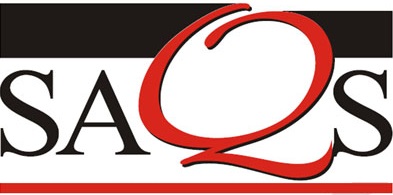SAQS is an international system of strategic audit and accreditation designed for the assessment of Schools in widely different national contexts. Although it is inspired by the special needs imposed by extreme cultural diversity, the SAQS standards are those of effective education for international management and apply to Schools in any cultural environment in any region.
SAQS was launched in 2003 by AMDISA and was designed through a process of close cooperation between existing international accreditation bodies in the field of management education. AMDISA - Association of Management Development Institutions in South Asia, established in 1989, is a network of Management Education and Management Development Institutions. It is an international not-for-profit association. AMDISA launched the global benchmark quality assurance and accreditation system for Business Schools – SAQS, as a service to the management education profession worldwide. SAQS emerged in an EFMD - AMDISA cooperation through a European Union funded Asia - Link project in 2003-04. It has an established presence in Bangladesh, India, Maldives, Nepal, Pakistan, Sri Lanka.
SAQS is a globally benchmarked system for mentoring, quality improvement, quality assurance and accreditation. Its processes lead to improvement through highlighting the need to meet internationally accepted quality standards. SAQS Accredited Quality Label is a recognition to the institution's commitment to Quality and Quality Assurance through continuous improvement. SAQS accreditation is institutional. Institution being defined as the organisational unit providing business and management education. Recently, Association of Indian Universities (AIU), New Delhi, India has accepted AMDISA’s Quality Assurance Program SAQS at par with NBA accreditation for according equivalence to the two-year full time PGDM with MBA degree of Indian Universities.
The principal features of the SAQS process and standards can be summarized as follows:
- Offers an international and intercultural approach to quality assessment.
- Places a great emphasis on corporate concerns, both in the standards themselves and in the assessment processes.
- Looks at the performance of the School taken as a whole, including all of its programmes and not just the MBA programme, and uses outcome-based perspectives and criteria.
- Special attention is paid to executive education.
- Stresses the personal development of MBA students and support of their interpersonal, entrepreneurial and managerial skills.
- Is conceived as a learning process involving an international forum for defining the relevant quality criteria.
- Is dynamic and forward looking with a concern for new trends.
SAQS considers that diversity is a value to live with and protect and that there is no “one best model” for a Business School. It accepts that each country has its own approach to management and business education and that the length, design, content and learning objectives of programmes will differ from one country to another, and even sometimes within countries. It is founded on the principle of recognizing diversity and the strengths of different approaches to higher education in management.
SAQS assesses Schools as a whole. It assesses not just degree programmes but all the activities and sub-units of the School, including research, e-learning units, executive education, consultancy and community outreach. Schools must be primarily devoted to management education. It looks for a balance between high academic quality and the professional relevance provided by close interaction with the practicing and corporate worlds. A strong interface with the world of business is, therefore, as much a requirement as a strong research potential. It attaches particular importance to the creation of an effective learning environment that favours the development of students’ managerial and entrepreneurial skills, and fosters their sense of global responsibility. It also looks for innovation in all respects, including programme design and pedagogy. It is dynamic and forward looking with a concern for new trends and developments in management education. It is conceived as a learning process for the whole community in management education, and as an international forum for defining the relevant criteria.
SAQS is supported by a broad international body of academics and professionals. Deans and Directors of reputed academic Schools, Managing and HR Directors of major corporations, heads of national professional associations, consultants, and assessment experts form the pool from which the international Peer Review Teams and Mentors are drawn.
